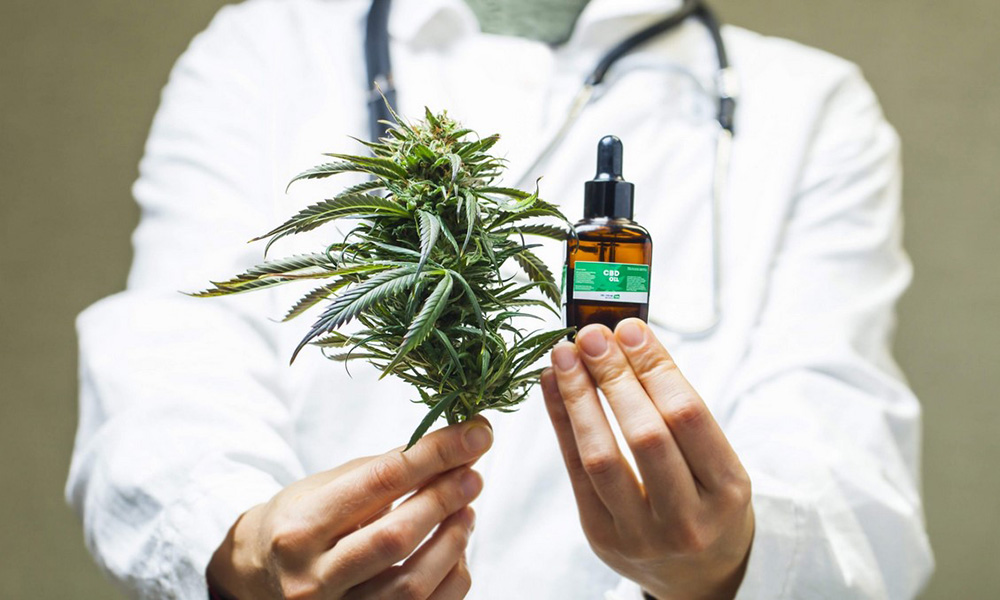There are a number of arguments for and against CBD’s imagined medical potential. The actions on cannabinoid receptors in our endocannabinoid system (ECS) are cited by those who believe it can aid with a variety of ailments. They also claim that because it is non-addictive, non-habit forming, and has very few negative effects, it is preferable to traditional pharmaceuticals. Buy different CBD products with cannabis delivery near me.
CBD oil is increasingly popular among those who suffer from migraines. According to the National Institute of Health, 36 million Americans have migraines. Let’s see if CBD oil can help people in this group.
Conventional Migraine Treatments and Their Side Effects
Let’s take a look at the most popular over-the-counter and prescription headache medicines first, as well as any potential negative effects. Then we’ll get into CBD oil for migraines.
Many doctors agree that a simple over-the-counter combination pain reliever like Excedrin is the first option for migraine sufferers. This medicine contains acetaminophen, aspirin, and caffeine in equal parts. If taken on a regular basis, this medication is quite safe. Ulcers, kidney damage, and even stroke or heart attack can all be caused by frequent usage.
In more severe or persistent migraine, physicians often prescribe a class of medicines called triptans, such as Imitrex or Treximet. These medicines act by boosting serotonin levels and restricting blood vessels in the brain. They are efficient, but they may cause dizziness, nausea, extreme drowsiness, and/or chest tightness.

Ergotamines are a type of migraine drug, as well as mild opioids like morphine and Oxycontin. These medications, on the other hand, have significant side effects. Since 1999, opioid overdose deaths have quadrupled.
Meanwhile, certain ergotamines, such as Migranal and Ergomar, might lead to serious illnesses including heart attack, stroke, birth defects in pregnant women, and even toxicosis if taken together with antibiotics or antifungal medicine.
Symptoms of emotional stress or “stress” include upset stomach, headache, and sleeplessness. Chronic disease is another form of stress that can manifest itself in a variety of ways. It’s generally overlooked until it becomes serious (as opposed to acute onset), but once it does, treatment options range from preventative (as opposed to acute) to acute. Verapamil (a calcium channel blocker), amitriptyline (an antidepressant), anticonvulsants, which act by “calming” overactive nerves in the brain, are all examples of preventive treatments.
These medications are not as hazardous as ergotamine or oxycodone. Still, preventative therapies can have a broad range of adverse effects. Nausea, low blood pressure, weight gain, and decreased libido are just a few of the side effects that may occur (low sex desire).
CBD for Migraines: What Is CBD?
CBD (cannabidiol) is the non-intoxicating component of cannabis, as opposed to THC (tetrahydrocannabinol), which causes an intoxicating high. It works by interacting with a
These receptors, when stimulated, interact with naturally occurring endocannabinoids under normal circumstances. They have an impact on such things as pain perception, appetite, memory, and immune function.
If there are insufficient or no naturally occurring endocannabinoids in the body, CB-1 and CB-2 receptors will be unable to bind. As a result, they will be unable to carry out essential chemical reactions that are essential for normal function.
This is where CBD comes in. It works as a modifier or “substitute” in the case of an endocannabinoid deficit. Unlike THC, it can perform its function without having to overpower the cannabinoid receptors (i.e., without causing intoxication).
Someone goes to the doctor with chronic muscular cramping and finds out that it’s due to potassium shortage. Isn’t it a simple enough remedy? They eat some bananas, and the muscle tissue begins working as intended.
It’s the same with CBD. Perhaps a person’s migraines are caused by an endocannabinoid deficiency in a specific brain region. Endocannabinoid deficits may be linked to migraine headaches. A modest CBD therapy might help to alleviate pain.
Is CBD for Migraines Effective? What Does the Research Say?
The main issue with considering CBD as a potential migraine treatment is the lack of data and scientific study to back up its efficacy.
However, CBD oil has been studied for its ability to help with migraines. In 2017, Forbes published an article on a research presented at the 3rd European Academy of Neurology (EAN) Congress by its creators. It revealed that CBD’s active components were more successful than prescription medicines in reducing acute migraine pain.
Furthermore, it caused fewer adverse effects than both amitriptyline and verapamil, the prescription drugs in question.
CBD’s active compounds were more successful in reducing acute migraine pain than prescription medications.
This latest study is just the latest in a long line of similar research.
According to a study published in Pharmacotherapy in 2016, those who used CBD on a daily basis had fewer monthly migraines. Their monthly migraine rate fell from 10.4 to 4.6 people per month.
We can look to a few sources for support. CBD, on the other hand, is still a long way from being considered an effective treatment option in a general medical setting. For the time being, we’ll have to rely on the little research available. We may also consult the findings of millions of individuals who have already used it (and are still using it) to get help.

How to Use CBD Oil for Migraines
CBD products and techniques for taking them are plentiful. CBD oil is the most popular CBD product. It involves placing a few drops under the tongue, keeping the oil there for up to 90 seconds, and swallowing. The CBD enters the bloodstream via the mouth through sublingual absorption. Although effects of ingesting CBD sublingually may not be noticeable within 30 minutes, they could be felt after 30 minutes.
For people who dislike the flavor or texture of oil, CBD edibles such as gummies provide an alternative. Inducible CBD gummies have a delayed onset time when compared to orally ingested cannabidiol. When someone gets a migraine suddenly, this is far from ideal.
Because CBD vape juice can work in a matter of minutes, it’s an viable alternative. This liquid is meant to be used with a vaporizer and comes in a variety of tastes.
Using CBD Oil for Migraines: Risks & Adverse Effects
While the cannabinoid is generally considered safe, there are a few potential adverse effects associated with it. CBD has several negative side effects, including:
- Fatigue
- Drowsiness
- Weight gain or weight loss
- Changes in appetite
- Upset stomach
- Diarrhea
There are also risks associated with vaping, including:
- Breathing difficulties
- Wheezing
- Chronic cough
CBD inhibits enzymes involved in the breakdown of various drugs, such as cytochrome P450. It’s best to avoid taking CBD with any medicine that includes a grapefruit warning since these medicines are broken down by cytochrome P450 and are likely to interact with cannabidiol.
CBD for Migraines: Is It Legal?
CBD is not lawful at the federal level. Epidiolex, a prescription medication that includes cannabidiol and is FDA-approved for certain ailments, is an exception.
CBD is generally legal in the United States. CBD from industrial hemp with a THC concentration of less than 0.3% is considered legal throughout the country, although there are some exceptions in certain states. Finally, most individuals may use cannabidiol as a migraine therapy without fear of getting into trouble because to its legality.
Those who wish to consume marijuana products with a higher THC content must verify that they reside in a state where recreational cannabis is permitted. Alternatively, they must have an MMJ card and live in a state with a medical marijuana program.
Final Thoughts on CBD Oil for Migraine
Cannabidiol’s ability to help reduce the severity and frequency of migraines is currently under investigation. What we do know now reflects cannabidiol’s potential usefulness in treating migraine. Whether or not cannabinoids will ever take the place of prescription and over-the-counter medicines is an open question.
Consider what type of CBD oil you want before purchasing it. Some tinctures are more high-quality than others. The following reputable CBD companies can assist those who are seeking for a migraine cure.
